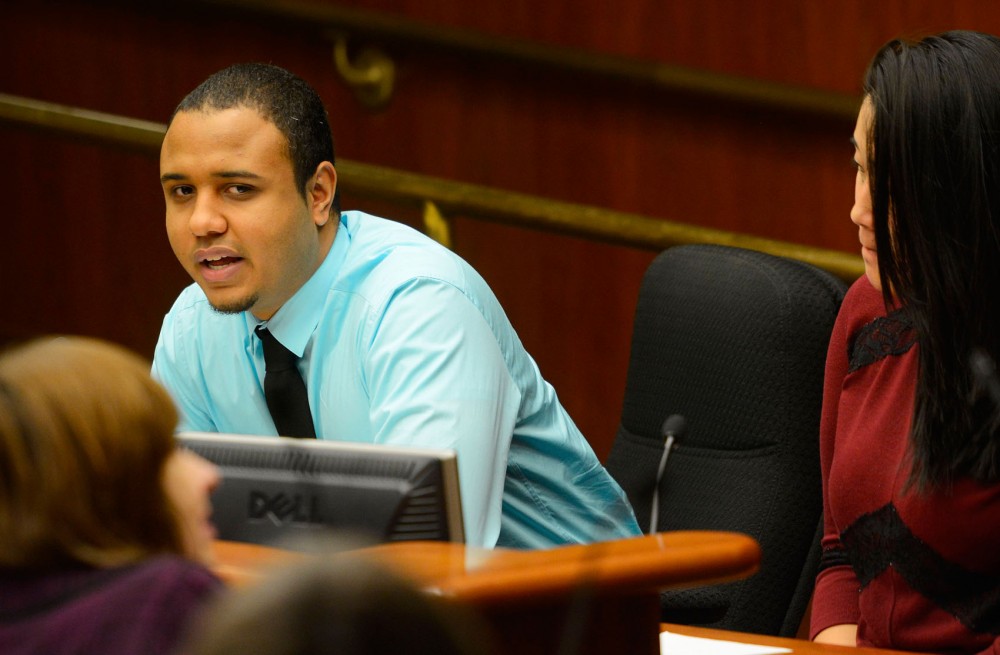As the legislative session moves forward, the Capitol is becoming a popular hangout spot for some University of Minnesota students.
Students for Education Reform, a campus student group, is lobbying for education reform at this legislative session, tackling issues like the achievement gap and remedial courses in the process.
“We take the experiences that a lot of [the group’s] students had in K-12 and address those negative experiences … through policy,” said Kenneth Eban, a 2014 University graduate and the group’s program director.
New college students are required to take remedial or developmental courses if they don’t meet certain standards in academic areas, like mathematics and English. The classes often do not provide credits for graduation.
But Eban said the classes hinder students’ ability to graduate on time and disproportionally affect people of color.
In Minnesota, 28 percent of students who graduated in 2011 were enrolled in at least one remedial course, according to a 2014 report by the Minnesota Office of Higher Education.
Among those students, only 1 percent attended the University of Minnesota. The majority enrolled in two-year colleges.
“They’re paying for an education they should have received in high school,” Eban said. “When we receive our diplomas in high school, we’re graduating with the promise of being college and career ready.”
Eban discussed the topic at the House’s Education Innovation Policy Committee meeting on Thursday. He said the student group would like to see an alternative course system implemented statewide in which students would receive credits instead of taking remedial courses.
Some lawmakers are responding to the group’s concerns.
Sen. Greg Clausen, DFL-Apple Valley, said he plans to introduce legislation in the coming weeks that replaces remedial courses with an intensive tutoring program at a fraction of the cost.
While remedial courses are Students for Education Reform’s focus this year, members have advocated for other education issues in the past.
The University’s chapter of the national organization, which started at Princeton University in 2009, began in fall 2010, Eban said.
In its first years, the local group hosted an annual event where K-12 students from surrounding-area schools came to campus to observe a typical University day.
The event, known as “College 101”, helped children from low-income families realize the possibilities of higher education, Eban said.
Leah Chaney, a marketing and political science senior, said she joined the policy reform group after volunteering for the event during her freshman year.
As the group’s president last legislative session, Chaney lobbied for the passage of legislation related to remedial coursework.
And this year she plans to continue the push.
“The power is held at the state Capitol, so we need to be present there to get our students’ voices heard,” Chaney said.
Whether the Legislature moves to change the state’s system of remedial courses remains to be unseen.
And Chaney said she’ll always be a strong advocate for education reform.
“I’m passionate about the cause,” she said. “I think that every child deserves a quality education because, as we know from history, education is that beacon of hope.”








